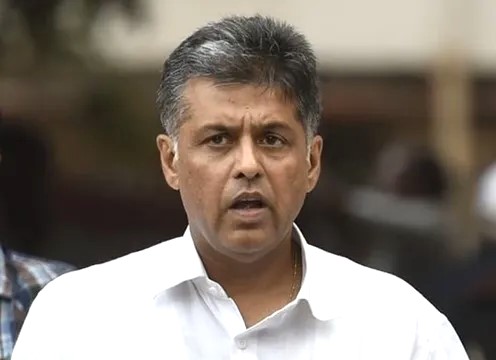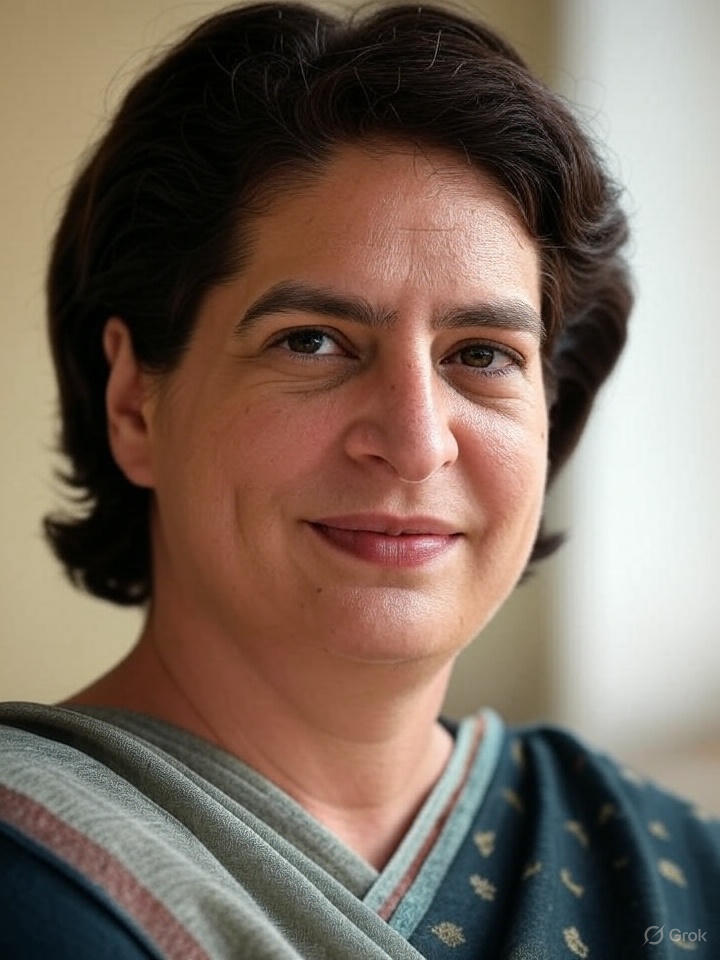Tridib Raman
When Uttar Pradesh Chief Minister Yogi Adityanath arrived in Delhi recently, putting an end to much speculation, he met not only PM Modi and Rajnath Singh but also Home Minister Amit Shah. According to sources, Shah, in his characteristic straightforward style, offered Yogi several pieces of advice, with the top concern being related to UP’s Energy Minister, AK Sharma. In his candid manner, Shah told Yogi, “You are being unnecessarily harsh with Sharma ji. There have been a few instances where he may have felt sidelined or embarrassed. You know how close he is to the PM, and he’s not some ‘seasoned politician’ that you should feel threatened by.” In response, Yogi, without holding back, said, “But he considers himself the next CM of the state. He doesn’t listen to anyone and does whatever he wants.” In fact, the relationship between Yogi and Sharma has always been strained, with Yogi believing that Delhi sent Sharma to Lucknow to keep an eye on his functioning. The tension between the two leaders can be gauged from the fact that discussions on the privatisation of the Purvanchal and Dakshinanchal Vidyut Vitran departments have been ongoing in UP for some time. The UP electricity department is protesting against this proposal, and various opposition parties in the state are making a big issue out of it. At the centre of this storm is none other than Energy Minister AK Sharma. Sensing the sensitivity of the matter, a post from AK Sharma’s official X handle surprised everyone. The post stated, “The decision on privatisation is not the Electricity Minister’s but the government’s, as it was made with the consent of a task force chaired by the Chief Secretary and the state government.” In other words, Sharma subtly held the Yogi government responsible for the decision. He didn’t stop there; the post further said, “When the Electricity Minister cannot even transfer a junior engineer on his own, how can he alone make such a big decision like privatisation?” Sharma even reposted this from his own X handle, which can be seen as a declaration of war from his side.
What Else Did Amit Say to Aditya…
Tridib Raman
According to sources, the Union Home Minister gave Yogi another important piece of advice, urging him not to unnecessarily tangle with another influential Thakur leader from UP, Brij Bhushan Sharan Singh. Shah believed that Brij Bhushan had significant influence in Gonda and the other two to three neighbouring districts. If provoked excessively, he could spoil the BJP’s prospects in these districts in the upcoming elections. In response, Yogi suggested the name of Raja Kirtivardhan Singh of Mankapur to counter Brij Bhushan, saying he could be promoted as a counterbalance. Shah promptly replied, “We have already given Kirtivardhan Singh the responsibility of a Minister of State in Delhi. Do you really think their strengths are comparable?” It’s said that after this, Yogi agreed to meet Brij Bhushan privately. The two leaders hadn’t met since 2023, but this time, Yogi met his fellow Thakur leader openly, and their roughly one-and-a-half-hour-long conversation was significant enough to be considered a step toward melting the ice between them. Shah then gave Yogi another key piece of advice, suggesting that he should periodically speak with Maharashtra Chief Minister Devendra Fadnavis. Shah said, “I believe he is neither as big a ‘mass leader’ as you nor possesses the same charismatic personality. Yet, his simplicity has taken him far in politics. Firstly, he believes in carrying everyone along, and secondly, he is brimming with administrative competence.” Yogi returned to Lucknow with this wisdom, promising to establish better coordination with the central leadership.
Internal Strife Plagues J&K Congress
Tridib Raman
Factionalism within the Jammu-Kashmir Congress shows no signs of abating. Recently, state president Hamid Karra issued a new directive, emphasising the seriousness of the ‘Our State, Our Right’ movement. He instructed party cadre, district presidents, and other leaders to maintain distance from the media. Karra explicitly directed that no party leader should speak on social media, in newspapers, or participate in TV debates. This decision follows a protest at Jantar Mantar in Delhi, where the state in charge, Syed Naseer Hussain, deliberately gave stage space to leaders opposing Karra. In response, Karra boycotted a press conference at the party headquarters in Delhi, citing health issues. The ongoing rift between Karra and Hussain may escalate further in the coming days.
Will Tewari Follow Tharoor’s Path?
Tridib Raman

Congress MP from Chandigarh and articulate leader Manish Tewari appears hurt by the recent decisions of the party high command. When Congress released its list of speakers for ‘Operation Sindoor,’ Tewari’s name was conspicuously absent. This decision was surprising, as Tewari, a lawyer by profession, is well-versed in international affairs and a more impactful orator compared to leaders like Gaurav Gogoi. However, Tewari fell out of favour with the high command when PM Modi strategically included him in a team of 59 leaders and diplomats for ‘Operation Sindoor’ without consulting the Congress leadership. This list also included names like Shashi Tharoor and Supriya Sule. Notably, Supriya Sule, while speaking on ‘Operation Sindoor’ this time, ended up showering praises on Modi. The Congress high command suspected that leaders like Tharoor and Tewari might follow a similar approach, which is why they were excluded from the party’s official speakers’ list. Hurt by this, Tewari posted on social media: “I am an Indian, and I speak for India.” On the day Priyanka Gandhi was scheduled to speak in Parliament, Tewari met her and informed her in advance that he would be flying to London that evening for a two-day conference and thus would not be present in the House. Soon after, he boarded his flight to London.
Rebellion Brewing in Odisha BJP

According to reliable sources, 17 disgruntled BJP MLAs from Odisha have camped in Delhi to voice their concerns. This group met several senior BJP leaders, including state in-charge Vijaypal Singh Tomar, organisation in-charge Sunil Bansal, and party general secretary B.L. Santosh. The MLAs allege that the state is under the grip of bureaucrats, who have effectively ‘taken over’ the government due to Chief Minister Mohan Charan Manjhi’s inexperience. They warn that if the situation persists, the Biju Janata Dal could return to power in the next election. These MLAs are advocating for Deputy CM Kanak Vardhan Singh Deo to take charge of the state. Sources indicate that the BJP high command has assured them to wait until a new party president is appointed, saying, “Return for now and wait till Delhi’s new leadership is in place.” However, the frustrated MLAs claim they have approached Delhi three times in the last seven months, only to be told the same thing each time. “If the party can’t even elect a president in all this time, how will it decide our fate?” they ask. The rebellion signals growing unrest in the Odisha BJP, with the leadership crisis in Delhi further fueling discontent among state legislators.
Same Story in Uttarakhand: BJP Faces Internal Turmoil
Uttarakhand BJP is also grappling with internal discord. Former Chief Minister Trivendra Singh Rawat has openly challenged incumbent CM Pushkar Singh Dhami, holding frequent meetings with anti-Dhami MLAs and leaders. However, Rawat has recently softened his tone, no longer projecting himself as the next CM candidate and instead promoting Anil Baluni for the role. Rawat is aware that ongoing corruption cases against him could jeopardise his chances of returning as CM, prompting him to back Baluni, a close confidant of both PM Modi and Amit Shah. Baluni’s challenge, however, lies in his lack of grassroots connections. He barely won the recent election, despite high-profile campaign support from Modi, Shah, and Yogi Adityanath. Another hurdle is Uttarakhand’s demographic: with 40% of the population being Rajputs, replacing a Rajput CM (Dhami) with a Brahmin (Baluni) could stir discontent.
Priyanka & Rahul’s Coordinated Attack in Parliament

On the day when both Priyanka and Rahul Gandhi were scheduled to speak in Parliament on ‘Operation Sindoor’, Priyanka Gandhi spent considerable time in the Leader of Opposition Rahul Gandhi’s chamber before her speech. The siblings engaged in serious deliberations about ‘who would address which aspects of the issue’. Rahul then advised Priyanka: “You should highlight the emotional dimensions of Operation Sindoor, while I will systematically critique the government’s mistakes in this operation. Your speech should maintain an emotional connection, while I’ll focus on substantive issues.” This strategic division of roles between the brother-sister duo was clearly visible during their parliamentary speeches as well.
